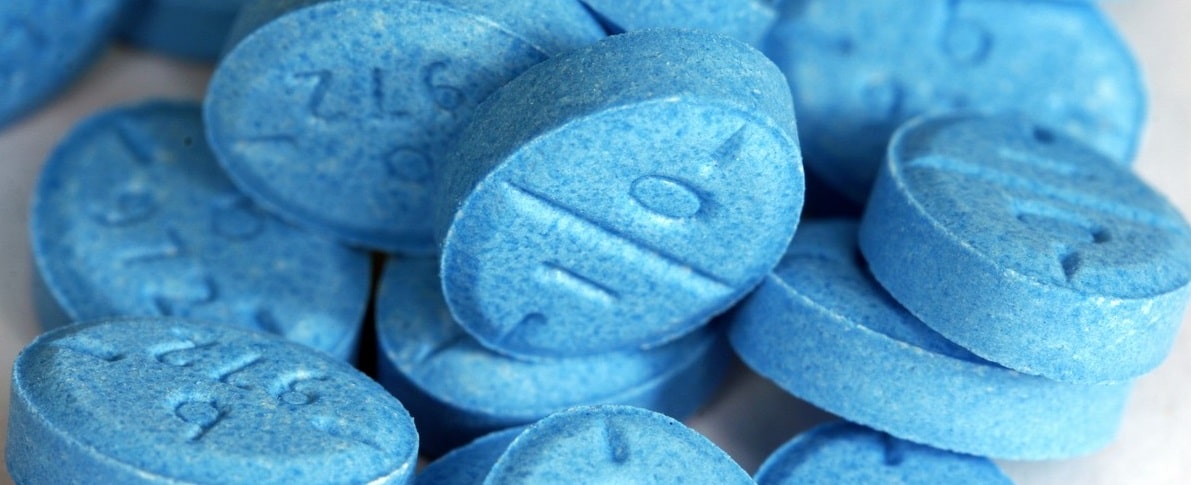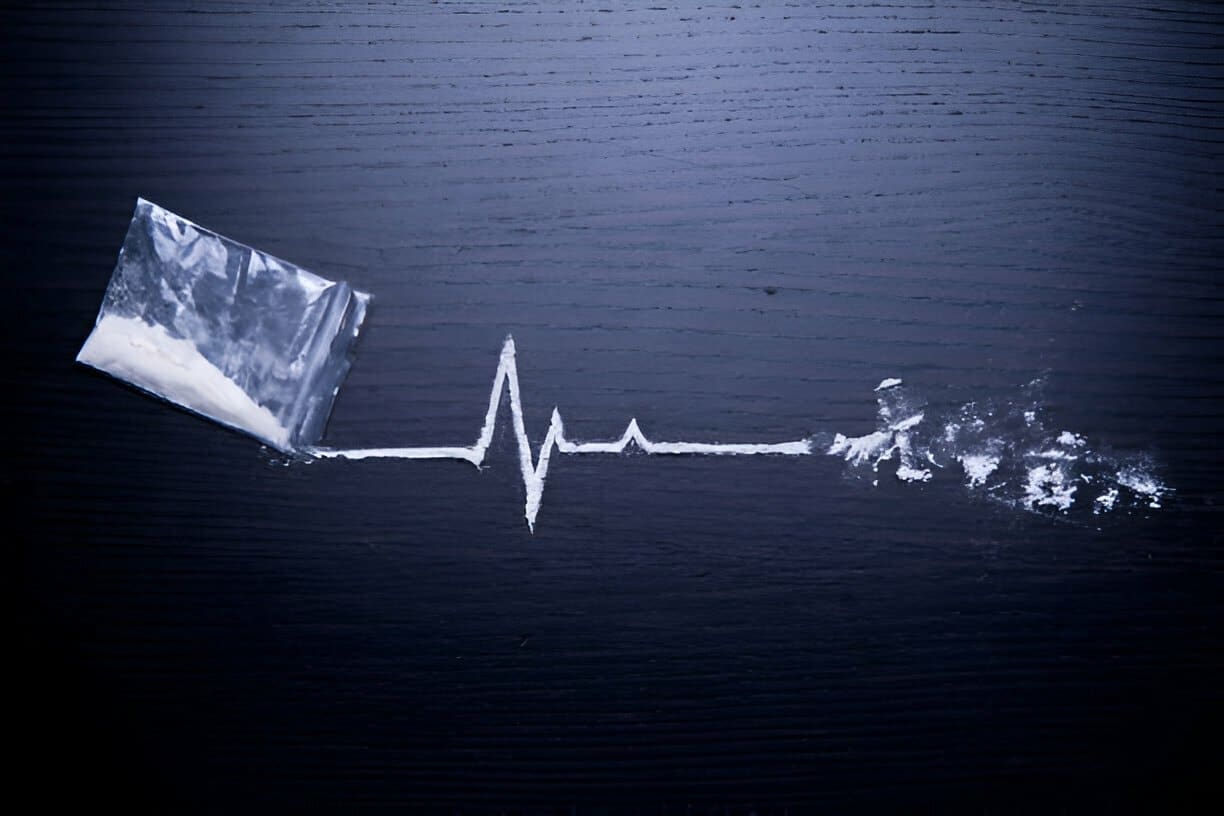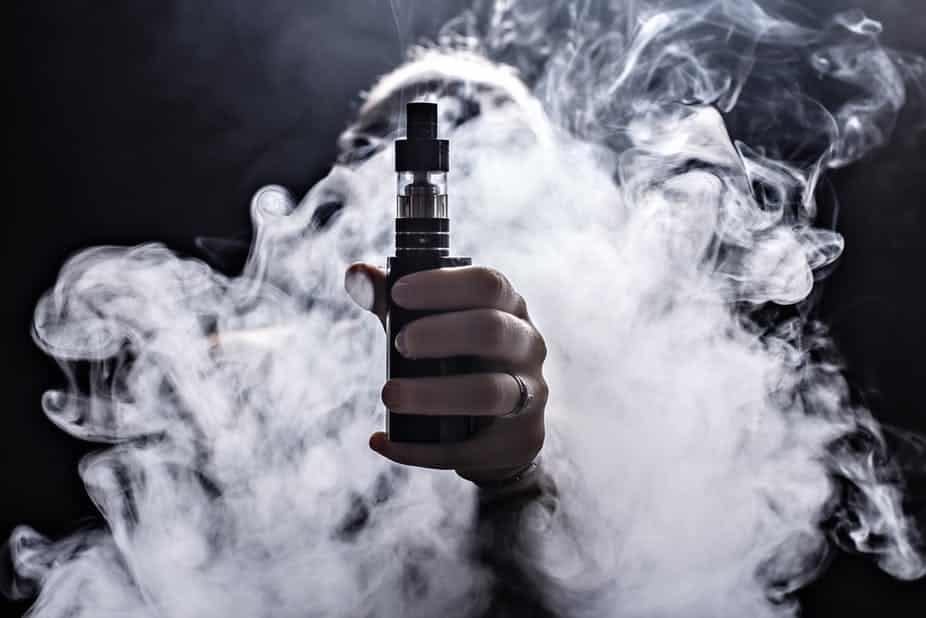Adderall is a powerfully addictive stimulant for the central nervous system. If you use Adderall in significant amounts for a long time, you can become addicted to it. Although the medicine is frequently prescribed to treat illnesses in children and teenagers, such as attention deficit hyperactivity disorder (ADHD) and narcolepsy, using it for longer than prescribed is not recommended. The unchecked use and misuse of this substance will eventually have catastrophic repercussions.

Adderall raises dopamine levels in the brain, causing feelings of exhilaration, alertness, and razor-sharp focus. This is why students and anyone trying to improve their professional performance frequently abuse it.
You can receive help if you or a loved one is having trouble quitting Adderall. Treatment is available to assist you in breaking the habit and resuming a healthy lifestyle. Experts with experience treating abuse and addiction can assist you in taking the necessary steps toward recovery.
If your loved one needs support dealing with an Alcohol Addiction, contact us today on 0800 999 1083. We can help you by recommending treatment options.
Adderall is a combination medication made up of four salts of amphetamine. It is a powerful stimulant of the central nervous system (CNS) used medically to treat attention deficit hyperactivity disorder (ADHD), narcolepsy, obesity, and other conditions. However, it can also be abused recreationally for the euphoric and stimulating “high” it can produce in users.
Adderall is a 25/75 mixture of levoamphetamine and dextroamphetamine (the two enantiomers of amphetamine); dextroamphetamine is a far stronger CNS stimulant than levoamphetamine, although the latter stays active in the body longer.
Amphetamine aspartate monohydrate, amphetamine sulphate, dextroamphetamine sulphate, and dextroamphetamine saccharate are the four amphetamine salts that make up Adderall. They are all present in equal quantities by mass.
Adderall was once marketed as the weight-loss medicine Obetrol. Still, its then-owners, Rexar Pharmaceuticals, were compelled to pull Obetrol off the market in the United States due to concerns about its efficacy and adverse effects.
Because Adderall is somewhat difficult to obtain legally in the United Kingdom, many people who abuse it get it from sources who import it through the dark web. This is dangerous not just because it is illegal, but it also puts users at risk since they may be given medicines that are not “pure” Adderall. These risks should alarm users, as they are clear evidence that Adderall abuse and addiction pose a significant risk to physical and mental health. However, rates of Adderall consumption, whether legal or not, continue to rise in the UK, as does the rate of Adderall addiction, which now affects an unknown but significant number of people.
In the United Kingdom, Adderall is classified as a class-B restricted substance under the Misuse of Drugs Act 1971, with penalties for criminal possession and supply ranging from 5 to 14 years in prison and an unlimited fine, respectively. “Unlawful” implies without a legitimate prescription; Adderall is legal to possess with a valid prescription, but transferring even one pill to someone who does not have such a prescription is illegal.
Adderall binds to norepinephrine and dopamine receptors in the brain and epinephrine receptors in the adrenal gland at the neurological level. As a result, the number of “feel-good” chemicals in the brain rises, improving concentration but also causing euphoria in the individual. As a result, Adderall is a controlled substance. Adderall, unsurprisingly, may be addictive. Other substances in this group include methamphetamine, opium, cocaine, and oxycodone, to name a few.

To properly comprehend Adderall addiction, you must first understand what it is and how it interacts with your body.
Adderall is a prescription medicine used to treat attention deficit hyperactivity disorder (ADHD) and narcolepsy in children and adults. It’s the brand name for a combination medication consisting of two central nervous system stimulants: amphetamine and dextroamphetamine.
ADHD is a condition marked by a lack of focus, impulsive behaviour, and erratic hyperactivity. Uncontrollable deep sleep is a symptom of narcolepsy, commonly accompanied by hallucinations and transient paralysis.
Adderall reduces the symptoms of ADHD and promotes enhanced wakefulness, improved cognitive control, euphoria, and muscle strength when taken as directed. However, when used in considerable amounts without a prescription, it might cause psychosis and rapid muscle breakdown.
There’s also the possibility of acquiring a drug addiction. After long-term, continuous use, your brain may grow addicted to Adderall, requiring it for even fundamental cognitive functions.
The medicine enters the brain and increases the production of neurochemicals like dopamine and norepinephrine. These substances control mood, alertness, motor activity, and general brain function.
Anyone who uses Adderall at all, in theory, puts themselves in danger of abuse. However, certain characteristics have been found to be linked to an increased risk of Adderall usage and addiction.

A family history of substance misuse (of any sort) and addiction and a family history of mental health difficulties (which are very significant drivers of addiction generally) are recognised to have a crucial influence on the development of addiction.
Because people with diseases that are commonly treated with Adderall – particularly ADHD – are far more likely than the general population to be prescribed the drug. They are much more likely to abuse it and get addicted to it.
Low self-esteem, a tendency for risk-taking or thrill-seeking behaviour, a strong need to fit in, sadness, anxiety, and loneliness are all personality traits that can also increase the risk of Adderall misuse.
Environmental and social factors known to increase the likelihood of Adderall abuse and addiction include:
Abusing Adderall has a variety of consequences, not all of which are favourable. In reality, the negative consequences of drug abuse far outweigh the benefits.
When you abuse Adderall, you are likely to encounter the following signs and symptoms:
Abuse can create changes in the neurocircuitry of the brain, leading to mental illnesses like depression and psychosis.
If you suspect a family member is abusing Adderall, some clear indicators and behaviours will reveal their drug usage. For starters, there will be less sleep and more energy and attentiveness. They may work for more extended periods of time than usual and appear to never weary. When Adderall is misused, there are other side effects to be aware of. They include behavioural alterations as well as a drug-seeking compulsion.
People who overuse Adderall (particularly for performance) conceal their substance use to avoid being labelled as cheaters. In other circumstances, you may want to hide your illegal drug usage due to the stigma you might face if others find out.
Some people may have withdrawal symptoms if they stop taking Adderall or reduce their dosage drastically. Even in prescribed users who adhere to their doctor’s treatment plan, Adderall use can lead to physical dependence. When the body becomes accustomed to Adderall, it will require more of the medicine over time to produce the intended benefits.
Physical dependence includes withdrawal as well. It’s crucial to remember that withdrawal is always a sign of physical dependence, not addiction. In the event of an addiction, a person will devote an excessive amount of time, energy, and money to obtaining and using Adderall, often at the expense of keeping up with the job, family, personal, or academic obligations.
Symptoms of Adderall withdrawal include:
Adderall usage has varied effects on different people, but it is a severe threat to one’s physical and mental health. If recovery treatment is not sought, the drug’s accessibility allows people to self-escalate their abuse. While there is plenty of medical coverage regarding the dangers of Adderall abuse, dangerous beliefs about the medication continue to spread, attracting new users each year. One of the most effective strategies to prevent addiction is for consumers to be informed of the dangers of Adderall usage.

Because Adderall is a prescription medication that can be administered to children, it is frequently misunderstood as a safe substance. You may use the drug with the best intentions, but without realising the risks, it poses to your health. If you have abused the medicine, you should seek medical care.
Adderall has a wide variety of side effects, from moderate to severe. An allergic reaction can be a serious side effect. The following are some Adderall side effects (not all of them are suggestive of abuse):
The following are more serious adverse effects:
Headaches, restlessness, and dizziness are just a few of the drug’s potentially serious side effects. You might have one or more of the following symptoms:
Muscle damage, psychosis, and intense despair, which can lead to suicidal thoughts, are severe side effects of the medicine.
Long-term use of Adderall can cause serious health problems, especially when the drug is misused in large quantities and for a long time. Because Adderall increases the production of neurochemicals in the brain, it can cause aggression, sadness, and paranoia in the long run.
Long-term use of the substance will most likely lead to dependence and addiction. Hallucinations, cardiovascular issues, tremors, panic attacks, suicidal ideas, and psychosis are probable side effects.
The danger of an overdose skyrockets whenever a person goes “off label” and abuses Adderall by either taking too much or altering its administration (e.g., snorting or injecting). Overdose symptoms include the following:
The most common co-occurring conditions in Adderall addiction are, as one might think, those that are frequently treated with Adderall: ADHD and narcolepsy. However, many other mental health disorders can drive substance consumption, potentially leading to addiction, as people with poor mental health frequently turn to substances as a kind of escape or self-medication.

When a substance abuse disorder coexists with another mental health problem, it is known as a dual diagnosis. Because both conditions must be treated simultaneously, and therapy for one may interfere with the treatment of the other, dual diagnosis makes treating addiction significantly more difficult. Specialist care is frequently required in such circumstances.
Treatment for Adderall addiction is learning to live without the drug. The first step in treatment is to assist you in managing Adderall withdrawal without relapsing. This treatment is necessary because quitting Adderall can be difficult due to exhaustion, depression, and difficulty concentrating (caused by the withdrawal). However, a professional treatment centre may provide medical supervision throughout the detox process, ensuring that your withdrawal symptoms are managed safely.
Even though various treatment options are available for Adderall addiction recovery, here’s a standard structure for most of the treatment plans:
Don’t go through the process of recovery alone. Treatment providers can answer your questions. Get in touch with one today.
Call 0800 999 1083 today!
Both inpatient and outpatient treatment programmes have their own set of advantages. Your treatment approach will thus be dictated by your circumstances, including the intensity of your addiction, your living environment, mental health, and financial situation. If you’re deciding between the two, assess the advantages and disadvantages to make the best decision.
With inpatient treatment, you’ll be monitored around the clock to ensure you get the care you need at every stage of your recovery. There are no outside distractions, and the focus is exclusively on your therapy and rehabilitation.
Outpatient treatment provides you with the same level of care as inpatient treatment but with more freedom. This can be useful if you have work or family obligations that prevent you from taking time off during your treatment. The primary problem with outpatient Adderall addiction treatment is that the medicines could be easily obtained (and triggers present also). As a result, the continual monitoring provided by an inpatient programme makes it a safer place to receive therapy.
Some clinics provide highly specialised therapy, even niche. If you believe you would benefit from specialised treatment and therapy, consult with an addiction specialist about your needs to get a sense of the types of treatment you might be able to pursue. Here are some examples:
CBT was initially developed to treat alcohol consumption, but it was later adapted to treat cocaine usage specifically. Nowadays, CBT is being utilised to treat a wide range of drug addictions. According to one of CBT’s major assumptions, learning processes have a critical role in substance dependence. For example, a CBT session could look into why drug addicts were encouraged to consume and eventually abuse the drug (whether they had prescriptions or not). Drug misuse often begins as a coping mechanism, such as a college student attempting to cope with the pressures of an achievement-oriented atmosphere. A person suffering from Adderall abuse can engage with a CBT counsellor to acquire new coping techniques and life skills.
DBT incorporates traditional cognitive behavioural approaches with Buddhist meditation notions like mindfulness and distress tolerance. DBT therapists collaborate with clients to identify what “a life worth living” means to them and then look into how they might achieve it.
A recovery centre may host on-site 12-step meetings or provide transportation to a local group. However, 12-step meetings are not affiliated with rehab institutions and can be attended by anyone in recovery; it’s just a matter of finding one (which is often relatively easy). As a result, 12-step meetings are critical in the post-rehab recovery process. When the rigorous rehab period at a treatment centre finishes, a recovering person is strongly encouraged to engage in a patchwork of supportive services, referred to as aftercare.

Relapse rates in the case of abuse and addiction to amphetamine stimulants like Adderall are high, with over 60% relapsing after attempting to quit. You can improve relapse prevention and ensure long-term recovery by studying the particular factors that may induce a relapse. Age, unemployment, multiple drug use, residence instability, single relationship status, cravings, low motivation, poor coping skills, multiple drug use, and engagement in drug selling are all characteristics that might lead to relapse.

BACP accredited psychotherapist with 16 years experience working in mental health specialising in psychodynamic person-centred therapies treating those with a range of mental health disorders including anxiety, depression, OCD and Addiction.

Fill in your details and we’ll send you a message via SMS.

No matter where you live, there are drug and alcohol rehab options for you to discover. Treatment providers are waiting to answer your questions. Get started today.

Ever felt that gnawing ache or burning sensation in your gut after a night of drinks? You’re not alone. Stomach pain after drinking is a common complaint, and there are a few reasons why it might happen. Let’s delve into the science behind the discomfort and explore ways to soothe your stomach. The Irritating Truth: … Continued

Cocaine, a stimulant known for its short-lived burst of energy and euphoria, hides a dark side. Behind the initial high lies a dangerous potential for overdose, with severe health consequences and even death. This article delves into the world of cocaine overdose, equipping you with the knowledge to recognize the signs, understand the dangers, and … Continued

Adult smoking habits in the UK refer to how often and in what ways people aged 18 and above use tobacco. This includes everything from smoking cigarettes every day to occasionally lighting up, as well as using other tobacco products. Understanding these habits is important for several reasons: Public Health: Smoking causes many diseases that … Continued

Addiction in the UK is a complex issue that is connected to various aspects of society such as healthcare and law enforcement. It affects people from all backgrounds and has negative impacts on families, communities, and the entire nation. Understanding addiction involves not only looking at the uncontrollable use of substances and repetitive behaviors but … Continued

Don’t go through the process of recovery alone. Treatment providers can answer your questions. Get in touch with one today.
Call 0800 999 1083 today!








